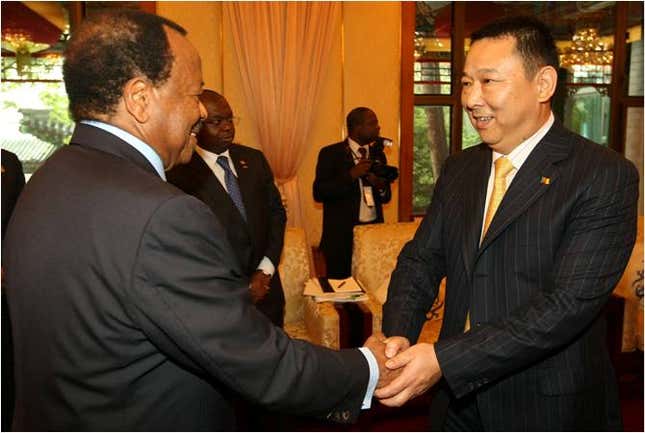
The saga of Liu Han—a Sichuan mining billionaire who has gone missing, leaving a trail of uncompleted global financing deals in his wake—illustrates the extreme risks of doing business with Chinese tycoons who may suddenly find themselves out of favor with Beijing.
International commodities companies who had partnered with Liu are scrambling to find out what on earth has happened to him, amid reports by state-owned media that he was detained for protecting his brother from a murder investigation.
In the US, people fret over whether billionaires have too much power (pdf) over politicians. In China, the opposite is true. The government officially owns all land, and the country lacks any real rule of law, or independent courts for people to appeal to if a politician treats them unfairly. So business people are entirely dependent on political patronage to stay successful.
Liu’s company Sichuan Hanlong Group was in talks—now suspended—to lend $665 million to Colorado-based molybdenum miner General Moly. Hanlong has also missed a deadline to complete a $1.19 billion takeover of Australia’s Sundance Resources.
Coming so soon after China’s new president Xi Jinping was installed, analysts are saying Liu may have found himself on the wrong side of China’s new leaders. The influential Chinese business magazine Caijing reported, citing unnamed sources, that Liu may have helped wealthy Chinese to move money out of the country before the leadership transition. It’s also possible China’s new leaders may have wanted a big business scalp to prove to they are not beyond bringing tycoons to heel. Since last fall, the nation’s 1% have been dressing down and serving cheaper wine to dodge the spotlight. Alternatively, it may be that Liu simply ran afoul of a government official for reasons we’ll never know, or that he really is the subject of an entirely straightforward criminal investigation that has nothing to do with politics.
Liu’s fall from grace is nothing new. Tycoons have suffered similar downfalls for years: It is jokingly called the “curse of the rich list.” Forbes magazine noted this in 2009.
Why does this happen? While there is no proof Liu Han has done anything wrong, one theory is that many Chinese billionaires achieved their wealth via corruption. The Communist Party cannot prosecute all of them, but to show the public it has graft under control, every so often it claims a high profile scalp. Another potential billionaire pitfall: The loss of a political patron to Beijing’s cutthroat internal power struggles. Xu Ming, a real estate billionaire linked to fallen former Communist Party star Bo Xilai, was detained last April and has not been seen since.
The curse has actually been quantified. One study found that 17% of people who appeared on the Shanghai-based Hurun Report’s Chinese rich list were arrested, charged or investigated after being included, in part because the government monitors them more closely, compared with a 7% chance of such entanglements for those not on the list. Liu looks highly likely to be the latest victim.



